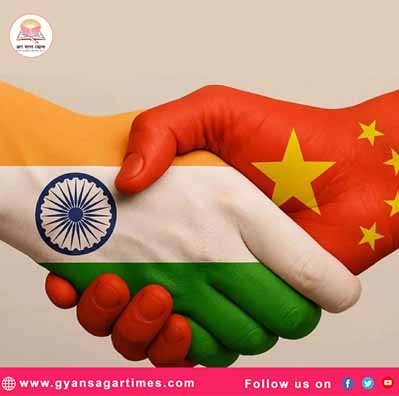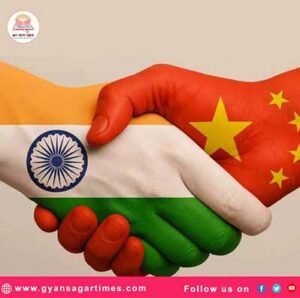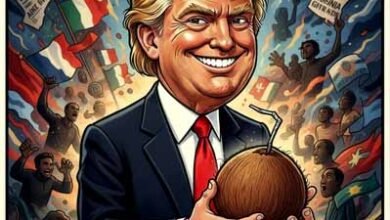
एक समीक्षा: टैरिफ के दौर में चीन की दोस्ती कितनी सहायक व नुकसानदायक होगी?
टैरिफ एक प्रकार का आयात शुल्क है जो एक देश दूसरे देश से आयात होने वाले सामानों पर लगाता है. इसका मुख्य उद्देश्य घरेलू उद्योगों को विदेशी प्रतिस्पर्धा से बचाना और सरकारी राजस्व बढ़ाना है. जब दो देशों के बीच टैरिफ बढ़ जाते हैं, तो इसे टैरिफ युद्ध कहा जाता है, जिससे वैश्विक व्यापार प्रभावित होता है. एक टैरिफ-भारी माहौल में, चीन जैसे एक प्रमुख व्यापारिक साझेदार की मित्रता कुछ महत्वपूर्ण तरीकों से सहायक हो सकती है.
यदि किसी देश पर टैरिफ लगाए जाते हैं, तो वह चीन जैसे मित्र देश के माध्यम से अपने उत्पादों के लिए नए बाज़ार ढूंढ सकता है. उदाहरण के लिए, यदि भारत पर अमेरिका द्वारा कुछ वस्तुओं पर टैरिफ लगाया जाता है, तो भारत चीन के साथ व्यापार बढ़ाकर उस नुकसान की भरपाई कर सकता है. इससे निर्यात पर पड़ने वाले नकारात्मक प्रभाव को कम किया जा सकता है.
चीन विश्व की फैक्ट्री के रूप में जाना जाता है. यदि किसी देश की आपूर्ति श्रृंखला चीन पर निर्भर करती है, तो चीन के साथ अच्छे संबंध बनाए रखने से टैरिफ के बावजूद भी आवश्यक कच्चे माल और तैयार माल का निर्बाध प्रवाह सुनिश्चित किया जा सकता है. इससे घरेलू उत्पादन और व्यापार को जारी रखने में मदद मिलती है.
टैरिफ के दौर में, टैरिफ लगाने वाले देशों के खिलाफ एक साझा मोर्चा बनाने के लिए चीन के साथ रणनीतिक साझेदारी सहायक हो सकती है. दोनों देश मिलकर विश्व व्यापार संगठन (WTO) जैसे मंचों पर टैरिफ के खिलाफ आवाज उठा सकते हैं. इस तरह का सहयोग, सामूहिक रूप से, टैरिफ लगाने वाले देशों पर दबाव डाल सकता है.
हालांकि, चीन के साथ गहरी मित्रता के कुछ हानिकारक पहलू भी हैं, खासकर टैरिफ के दौर में…..
चीन के साथ अत्यधिक व्यापारिक निर्भरता एक बड़ा जोखिम है. यदि कोई देश अपनी अर्थव्यवस्था को चीन पर अत्यधिक निर्भर बना लेता है, तो चीन के साथ किसी भी व्यापारिक या राजनीतिक तनाव के कारण उसकी अर्थव्यवस्था को भारी नुकसान हो सकता है. चीन अपनी आर्थिक शक्ति का उपयोग राजनीतिक उद्देश्यों के लिए भी कर सकता है.
चीन से सस्ते उत्पादों का भारी आयात, टैरिफ के अभाव में, घरेलू उद्योगों को नुकसान पहुंचा सकता है. भले ही टैरिफ लगे हों, लेकिन यदि चीन के साथ मित्रता के कारण उन पर छूट दी जाती है, तो स्थानीय कंपनियां चीनी उत्पादों से प्रतिस्पर्धा नहीं कर पाती हैं, जिससे वे बंद हो सकती हैं. इससे आत्मनिर्भरता का लक्ष्य कमजोर होता है.
चीन के साथ व्यापार में कई देशों को भारी व्यापार घाटे का सामना करना पड़ता है, जिसका अर्थ है कि वे चीन से आयात अधिक करते हैं और निर्यात कम। टैरिफ के दौर में भी, यह घाटा बढ़ सकता है यदि देश चीन से कच्चे माल या महत्वपूर्ण वस्तुओं का आयात जारी रखता है, जबकि उसके अपने निर्यात को बाज़ार में चुनौतियों का सामना करना पड़ता है.
टैरिफ के दौर में चीन के साथ दोस्ती एक दोधारी तलवार की तरह है. यह कुछ मामलों में सहायक हो सकती है, जैसे कि वैकल्पिक बाज़ार और आपूर्ति श्रृंखला का संरक्षण, लेकिन इसके साथ ही अधिक निर्भरता और घरेलू उद्योगों को नुकसान जैसे महत्वपूर्ण जोखिम भी जुड़े हैं. किसी भी देश को चीन के साथ अपनी मित्रता का संतुलन बनाए रखना चाहिए, ताकि वह इसके लाभों का उपयोग कर सके, लेकिन इसके नकारात्मक प्रभावों से भी बच सके.
========== ========= ===========
A Review: How helpful or harmful will friendship with China be in the era of tariffs?

A tariff is a type of import duty that a country imposes on goods imported from another country. Its main purpose is to protect domestic industries from foreign competition and increase government revenue. When tariffs increase between two countries, it is called a tariff war, which affects global trade. In a tariff-heavy environment, friendship with a major trading partner like China can be helpful in some important ways.
If tariffs are imposed on a country, it can find new markets for its products through a friendly country like China. For example, if tariffs are imposed on India by the US on some goods, India can compensate for that loss by increasing trade with China. This can reduce the negative impact on exports.
China is known as the world’s factory. If a country’s supply chain depends on China, maintaining good relations with China can ensure an uninterrupted flow of essential raw materials and finished goods despite tariffs. This helps to keep domestic production and trade going.
In times of tariffs, a strategic partnership with China can be helpful in building a common front against tariff-imposing countries. The two countries can together raise their voice against tariffs at forums such as the World Trade Organisation (WTO). Such cooperation, collectively, can put pressure on the tariff-imposing countries.
However, there are some detrimental aspects of close friendship with China, especially in times of tariffs…
Excessive trade dependence on China is a big risk. If a country makes its economy highly dependent on China, any trade or political tension with China can cause heavy damage to its economy. China can also use its economic power for political purposes.
Heavy imports of cheap products from China, in the absence of tariffs, can harm domestic industries. Even if tariffs are imposed, if they are exempted due to friendship with China, local companies are unable to compete with Chinese products, which can lead to their closure. This weakens the goal of self-reliance.
Many countries face huge trade deficits with China, meaning they import more from China than they export. Even in a time of tariffs, this deficit can grow if the country continues to import raw materials or critical goods from China while its own exports face challenges in the market.
Friendship with China in a time of tariffs is a double-edged sword. It can be helpful in some cases, such as preserving alternative markets and supply chains, but it also carries significant risks, such as greater dependency and damage to domestic industries. A country must balance its friendship with China so that it can utilise its benefits but also avoid its negative impacts.





